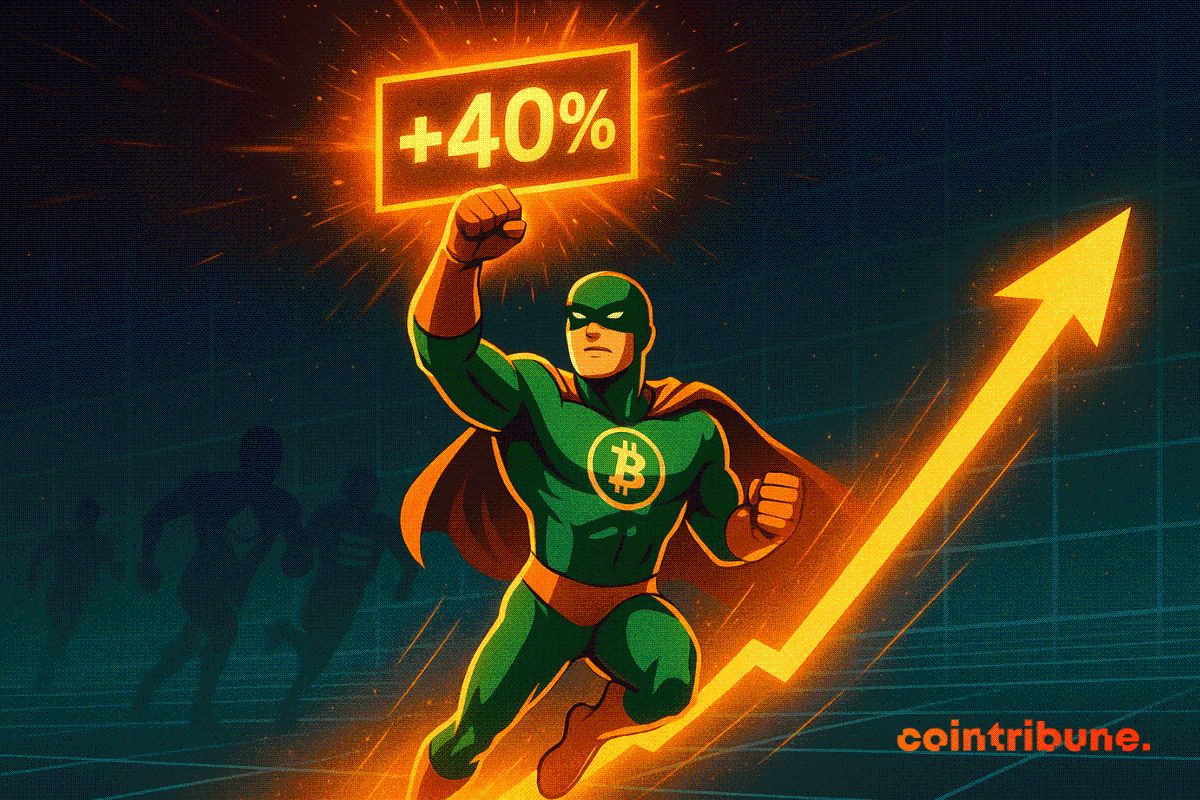AI Agent Platforms: The Next Frontier in Search Disruption and Recall's Strategic Edge
- Recall.ai disrupts traditional search by transforming real-time meeting data into contextual intelligence via its "Meeting Bots as a Service" platform. - The API-first model enables enterprises to integrate AI-driven transcription, sentiment analysis, and interactive features like Output Media for automated workflows. - With $10M ARR and 300+ enterprise clients, Recall's usage-based pricing and vertical-specific solutions position it as a scalable AI infrastructure leader in the $12B transcription market
In the evolving digital landscape, AI agent platforms are redefining how users interact with information. Traditional search engines, once the gatekeepers of knowledge, now face a paradigm shift as conversational AI tools deliver direct, synthesized answers to complex queries. This transformation is not merely a technological upgrade—it is a fundamental reimagining of user intent, content authority, and digital infrastructure. At the forefront of this movement is Recall.ai, a company leveraging its "Meeting Bots as a Service" model to carve out a unique niche in the AI-driven search ecosystem. For investors, the question is no longer if AI will disrupt search, but how to position for the winners in this new era.
Recall's Technological Edge: Beyond Search, Into Contextual Intelligence
Recall.ai's core innovation lies in its ability to transform unstructured meeting data into actionable intelligence. Unlike traditional search engines that index static content, Recall's platform operates in real time, capturing, transcribing, and analyzing dynamic conversations across platforms like Zoom , Microsoft Teams, and Slack. This capability is underpinned by a modular architecture that integrates third-party AI tools—such as Symbl.ai for sentiment analysis and Speechmatics for transcription—creating a layered intelligence stack.
The platform's API-first approach allows developers to embed meeting intelligence into workflows without building bespoke infrastructure. For instance, a customer like Instacart might use Recall's API to automate internal strategy sessions, while a legal firm could deploy it for HIPAA-compliant telehealth transcription. This flexibility is a critical differentiator. Traditional search engines struggle with contextual nuance, but Recall's bots excel in environments where real-time, speaker-specific insights matter.
Moreover, Recall's recent introduction of "Output Media"—enabling bots to inject synthesized audio or video into meetings—signals a shift from passive observation to active participation. This feature opens new revenue streams, such as AI-generated Q&A sessions or automated follow-up actions, positioning Recall as a platform for interactive knowledge management rather than mere data capture.
User Adoption and Scalability: A B2D Play with Enterprise Momentum
Recall's growth trajectory underscores its scalability. From $2.1 million in 2024 to $10 million in ARR by early 2025, the company has attracted over 300 enterprise clients, including Brighthire and Revenue.io. Its B2D (Business-to-Developer) model targets a high-margin segment: developers building AI-powered tools for internal enterprise use. This strategy bypasses the noise of consumer markets and taps into the growing demand for productivity-enhancing APIs.
The platform's cross-platform compatibility—supporting Zoom, Teams, and Webex—ensures broad adoption without vendor lock-in. However, the true scalability lies in its usage-based pricing model. At $0.80–$1.00 per hour of meeting processed, Recall monetizes every minute of engagement, creating a flywheel effect: the more meetings a client processes, the higher the revenue. Enterprise volume discounts further incentivize deep integration, while value-added services like real-time transcription and sentiment analysis diversify income streams.
Revenue Model Viability: Infrastructure-Heavy, But High-Margin Potential
Recall's business model is infrastructure-intensive, with gross margins estimated at 50–60% post-optimization. While this lags behind traditional SaaS margins, the company has mitigated costs through technical reengineering—such as switching from WebSockets to reduce AWS expenses by millions annually. These optimizations are critical for long-term viability, as the cost per meeting minute must decline to sustain growth.
The company's $10 million Series A funding, led by Ridge Ventures and Y Combinator, provides runway to scale. Future monetization could expand beyond video meetings into voice-based systems (e.g., Zoom Phone, Twilio) and vertical-specific solutions like telehealth or contact center analytics. These adjacent markets represent a $12 billion global opportunity in AI-driven transcription alone, according to Grand View Research.
Investment Thesis: Capturing the AI Infrastructure Play
For investors, Recall exemplifies the "AI infrastructure" category—a sector poised to outperform as enterprises prioritize tools that integrate AI into core workflows. The company's strengths align with three macro trends:
1. Shift to Conversational AI: Users increasingly expect direct answers, not links. Recall's meeting bots mirror this trend in enterprise settings.
2. API Democratization: By abstracting complex infrastructure, Recall enables developers to build AI applications faster, accelerating adoption.
3. Vertical-Specific AI: Niche solutions (e.g., HIPAA-compliant transcription) create defensible moats in regulated industries.
However, risks remain. Platform dependencies on Zoom or Teams could disrupt access if APIs change. Additionally, gross margins must improve to justify high valuation multiples. Yet, for early-stage investors, these challenges are surmountable given the market's size and Recall's first-mover advantage in meeting intelligence.
Conclusion: Positioning for the AI-Driven Search Era
The disruption of traditional search is not a distant future—it is here. AI agent platforms like Recall.ai are redefining how information is accessed, contextualized, and acted upon. For investors, the key is to identify companies that bridge the gap between infrastructure and user intent. Recall's combination of scalable API economics, enterprise traction, and vertical expansion potential makes it a compelling candidate.
As the market shifts from keyword-based SEO to AI-driven contextual relevance, the winners will be those who build the tools that power this new ecosystem. Recall is not just a search disruptor—it is a foundational layer in the AI infrastructure stack. For those willing to bet on the next phase of digital transformation, the time to act is now.
Disclaimer: The content of this article solely reflects the author's opinion and does not represent the platform in any capacity. This article is not intended to serve as a reference for making investment decisions.
You may also like
Witness the Dynamic Shifts in Bitcoin and Altcoin ETFs
In Brief Bitcoin and altcoin ETFs witness dynamic shifts in inflows and outflows. XRP and Solana ETFs attract notable investor attention and activity. Institutions explore diversified crypto ETFs for strategic risk management.

Peter Schiff Clashes With President Trump as Economic and Crypto Debates Intensify

Bitcoin Cash Jumps 40% and Establishes Itself as the Best-Performing L1 Blockchain of the Year

Bitcoin Price Plummets: Key Reasons Behind the Sudden Drop Below $88,000